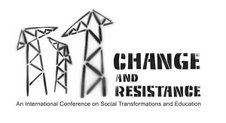Witold Jakubowski
University of Wrocław
Popular culture ceases to be treated as a ‘worse’ part of the cultural reality. It is a space in which people respond more sincere than in the questionnaires. Popular culture (understood here as the folk culture of post-industrial societies) is authentic, and in a spontaneous way comments on the everyday life.
Pop music is its important part. Dilemmas and uneasiness not only of the new generations are most often articulated there. Taking into consideration the fact that a lyrics is a text directed to a wide, heterogeneous public, it is naturally characterized by a high degree of simplicity. Pop music lyrics are cultural texts and thus they can be read as pedagogical texts.
Scholars claim that the choice of a theme by a pop singer gives it a definite place in the hierarchy of importance. As a result, if a lyrics deals with propaganda, it reveals at the same time that the theme constitutes an important problem for its author. The lyrics becomes thus an elaboration, a commentary on those aspects of reality that are important for the author. The interpretation of the texts reveals the meanings that are common for the receiver and the singer. An attentive listening of the texts makes it possible to understand what the younger generation wants to tell and this, in turn, are painful and accurate diagnosis of the reality. The lyrics reflect what is important for the young generation, what irritates them, what they live by, and what they give meaning to.
In my paper I want to give a picture of Polish changes in the political system as seen in the Polish pop music lyrics. I shall pay special attention to the context of changes that are accentuated there, which aspects of the changes are commented on and on the discussed consequences of the changes.

No comments:
Post a Comment